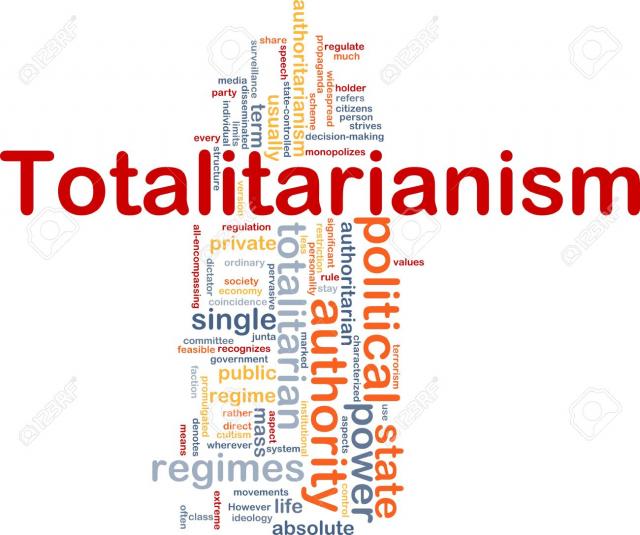Search
Democracy Links
Member's Off-site Blogs
come to the edge he said ....

from Crikey …..
The government's controversial citizenship-stripping bill is in deep trouble, as it becomes apparent that it has been drafted too hastily and the "solution" to the problem of ministerial discretion has merely pushed it further up the bureaucratic chain.
The bill is currently being considered by the Joint Committee on Intelligence and Security, which conducted hearings yesterday and today. The bill would cause people engaging in various forms of terrorism-linked conduct to "automatically" lose their citizenship by ministerial declaration. Cabinet split over the bill, which the Prime Minister leaked to News Corp before springing on his colleagues, and in particular over giving the Department of Immigration an unfettered and unreviewable power to strip anyone with dual citizenship of their Australian citizenship. The original proposal would also have stripped non-dual nationals of their citizenship if they might have been able to obtain citizenship elsewhere.
University of NSW Law Professor George Williams spoke at the JCIS hearing yesterday and condemned the bill, which he described as "almost set up to fail". A number of the problems with the bill are already identified -- for example, the bill as drafted would strip people guilty of vandalising Commonwealth property of their citizenship. However, Williams yesterday identified another major problem.
In seeking to avoid both the constitutional and political problem of having an unreviewable ministerial discretion to strip people of their citizenship, government lawyers hastily crafted a fix that preserved the proposal but removed ministerial discretion. Under the bill as presented to Parliament, citizens would be deemed to have "automatically" renounced their citizenship if they engaged in certain acts; the role of the minister was merely to issue a notice to that effect once he or she "becomes aware" of that conduct.
As Williams noted, this simply pushes the actual decision to revoke citizenship from the minister back to the bureaucrats who advise him or her that such conduct has taken place - the Immigration Department, and intelligence and law enforcement agencies. It becomes their decision as to whether a person has engaged in the relevant conduct -- and that decision, too, is unreviewable; indeed, unlike the ministerial notice, there is no possibility that the person whose citizenship may be stripped may even be made aware that they face such a fate.
These bureaucrats are also, in a non-legal sense, even less accountable than a minister, who at least is accountable to Parliament and to public opinion. The government's "fix" thus compounds the problem. It also shifts yet more power to the least accountable and most powerful bureaucrats in the country, with the minister required to act as a rubber stamp for their decision.
And the fix creates another problem: as constitutional law expert Professor Anne Twomey noted in her submission to the committee, all of this applies regardless of intent: the bill is so widely drafted that unwittingly raising funds or otherwise assisting terrorists or terrorist groups would automatically lead to the loss of citizenship. Twomey uses the real example of the flying instructors who taught the 9/11 terrorists how to fly:
"Does this mean that a person ‘renounces’ his or her citizenship by simply doing his or her job (e.g. training pilots) while being completely unaware that this is training being undertaken in preparation for committing a terrorist act? This is particularly important, because unlike a criminal offence, renunciation of citizenship is automatic and there is no issue of discretion to prosecute and no determination by a court -- hence there is no requirement to prove guilty intent."
Twomey also noted a number of both legal and drafting howlers in the bill that were, she said, "a consequence of making policy on the run and pursuing thought bubbles and sound bites without having first sought and received considered legal advice and without taking adequate time to work through the complexities and consequences of the proposed law".
These damning assessments from two of the country's best legal authorities are highly problematic for JCIS. Unusually, committee chair Dan Tehan was actually behind the push for bill, saying "it is time we looked at new ways to revoke the citizenship of those who wish to harm us and have abused those rights and privileges. This is not radical; it’s plain common sense." It's not at all clear that JCIS - which by virtue of its statutory nature is intended to be less partisan than normal committees, reflecting its serious responsibilities - will be able to conduct a genuinely independent assessment of the bill before it when the committee chair has been forthright in his advocacy for it. But someone has to save the government from its own sloppy, poorly considered legislation.
- By John Richardson at 6 Aug 2015 - 12:27am
- John Richardson's blog
- Login or register to post comments
Recent comments
9 hours 44 min ago
18 hours 57 min ago
19 hours 11 min ago
1 day 5 hours ago
1 day 11 hours ago
1 day 14 hours ago
1 day 16 hours ago
1 day 16 hours ago
1 day 18 hours ago
1 day 18 hours ago